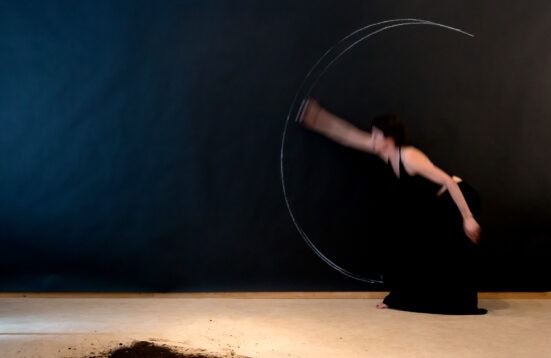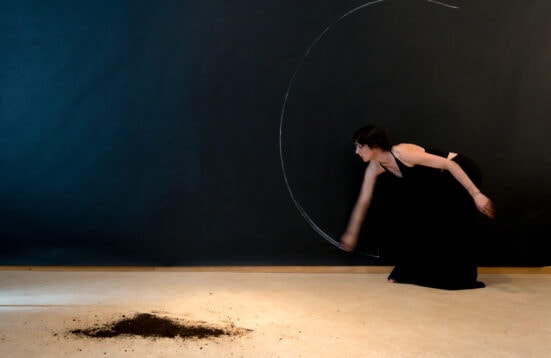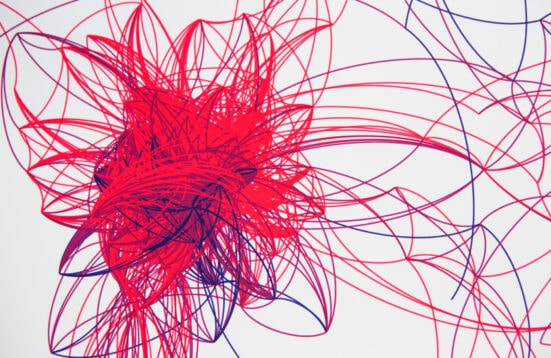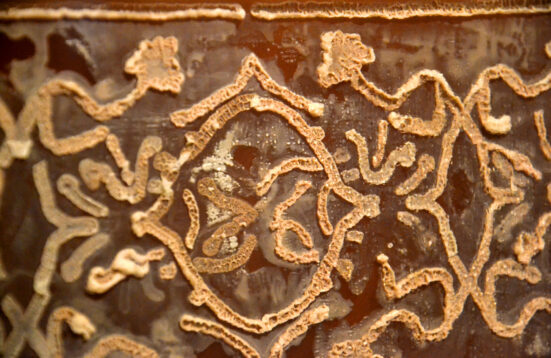The Concept of Nonhuman Subjectivities.
Current Artistic Practice in Posthumanism.
Academic Paper | Regine Rapp
Excerpt of the academic paper “Das Konzept Nonhuman Subjectivities. Aktuelle künstlerische Praktiken im Posthumanismus” [“The Concept of Nonhuman Subjectivities. Current artistic practice in posthumanism”] by Regine Rapp:
“[…] In this essay I would like to introduce the concept of “Nonhuman Subjectivities” by means of selected current artistic positions that place nonhuman organisms – animals, plants, fungi – at the centre of their work. As different as their artistic strategies, formats and aesthetic criteria are, they are united by an interest in the following aspects: The agency and sentience of nonhuman beings, phenomena of human-nonhuman communication, and a critical revision of definitions of intelligence. All this is closely related to recent research results from the life sciences. In doing so, I would like to emphasize the different unconventional practices of those artists* who often turn to new formats and themes in their process-oriented artistic projects in the form of a multidisciplinary practice. The selected examples show how the classical laboratory and exhibition spaces are functionally, performatively, and interactively questioned, expanded, or even subverted. The respective artists usually not only work together with scientists, they also work in laboratories themselves. I consider this to be a new artistic paradigm. It is about artistic practices that pursue a direct interest in organic matter as such. The artists* engage with biomatter in open, accessible formats without subsequently transforming it into a traditional artistic format (painting, image, sculpture, etc.). Representation is deliberately subverted in favour of a direct artistic engagement with matter. It is significant that in this new art movement one increasingly encounters the open and ephemeral format of performance and collaborative forms of work. […] The concept Nonhuman Subjectivities goes back to a research and exhibition series of the same name that Christian de Lutz and I developed in 2014/15 and realized at Art Laboratory Berlin in 2016/2017. Based on exhibitions, talks, seminars, workshops, and a three-day international interdisciplinary conference entitled Nonhuman Agents in Art, Culture and Theory in November 2017, a broad discursive field of themes, theses, formats, projects, and especially questions could emerge in an open mode of work that was and is negotiated with a broad public. In 2017, the concept continued under the title Nonhuman Agents. The entire thematic complex would not have emerged without the previous concept [macro]biologies & [micro]biologies (2014/15), in which we already engaged with artistic practices, theoretical research from the natural sciences and humanities, and curatorial practice based on themes such as the biosphere, organisms, bacteria, and molecules. […]” Regine Rapp, p. 68.
About the anthology
Design und Mimesis. Nachahmung in Natur und Kultur, ed. by Friedrich Weltzien and Antonia Ulrich, Berlin: Reimer 2019
Nature and culture are usually seen as opposites in intellectual and cultural history. At the same time, nature often serves as a model in design issues, for example in fashion design or urban planning. The role of mimesis as imitation of nature in design is explained in this volume.
Nature often serves as a model for design – at the same time, mimetic behaviour can sometimes be observed in animals and plants, which would distinguish them as creative beings. So are nature and culture opposites, as often alluded to in intellectual and cultural history? Numerous concepts and theories of design are based on the distinction between the involuntary and the deliberately designed, between the natural and the man-made. Currently, topics such as designer plants and animals, patents on genomes, sustainability, climate change, the energy transition, and animal ethics are the subject of lively discussion and are assessed as challenges for both the present and the more distant future. The authors of this volume show the role of mimesis as imitation of nature in design. The contributions address topics as diverse as the design of virtual spaces in computer games, for example, the sustainable production and disposal of clothing, and the imitation of animals and their behaviour in contemporary performance art.
The editor
Antonia Ulrich is a staff member in the Theory and Science Department of Design and Media at Hannover University of Applied Sciences and Arts. Friedrich Weltzien is Professor of Creativity and Perceptual Psychology at Hanover University of Applied Sciences and Arts.
The authors
Stefan Adler, Berlin; Roland Borgards, Würzburg; Sabeth Buchmann, Vienna; Sonja Dümpelmann, Cambridge, MA; F. Volker Feyerabend, Hannover; Jasper A. Friedrich, Hannover; Kristin Gerber, Berlin; Suzanne Koechert, Hannover; Beatrix Landsbek, Hannover; André Nakonz, Hannover; Alexandra Panzert, Hannover; Regine Rapp, Berlin; Caroline Thiem, Berlin; Jessica Ullrich, Münster; Antonia Ulrich, Hannover; Friedrich Weltzien, Hannover
With photo spreads by: Anna Artaker, Vienna; Volker Eichelmann, London; Anton Krüger, Hanover; Meike Gleim, Brussels; Hong Zeiss, Vienna.
Keywords
Ecological art, Ecological design, Thanatosis, Becoming an animal in art, Artistic language imitation, Nature imitation in Bauhaus, Nature imitation in interior design, Bionics, Computer game, Virtual reality, Virtual reality, Jungle and nature conservation, Urban trees, Sustainable fashion, Posthumanism, Biodesign, Mimesis, Performance art.




